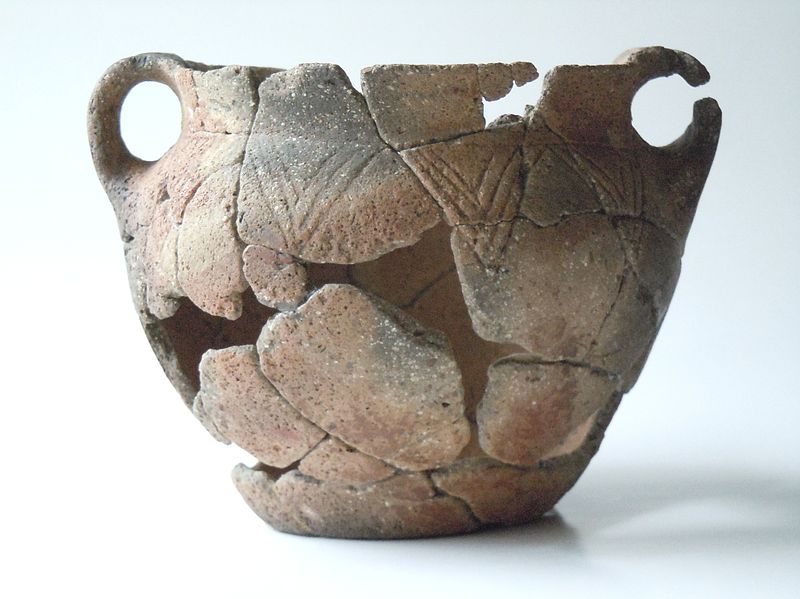Eric H. Cline, archaeologist and historian, has written a new book, 1177 B.C.: The Year Civilization Collapsed, about the end of the Bronze Age. He just did an Ask Me Anything at Reddit. A few exchanges follow.
________________________
Question:
In what you’ve studied, what’s the most interesting reason/way that a civilization collapsed? Is there anything in the story of that collapse that you think that we could take a lesson from today?
Eric H. Cline:
I’ve only studied the Late Bronze Age collapse, but in my view all of the civilizations were interlinked and so I argue that there a lot of interesting reasons/ways that brought down the civilizations, ranging from climate change, drought, famine, earthquakes, internal rebellions, etc. There may or may not be lessons that we can learn; some people reading my book are intrigued by the fact that there is evidence for climate change back then, just before/as the civilizations were collapsing.
______________________
Question:
What’s your most controversial opinion?
Eric H. Cline:
That we’re never going to find Noah’s Ark. That pisses off more people than you might imagine…
________________________
Question:
What are your thoughts on Jesus?
Eric H. Cline:
He was a nice Jewish boy.
________________________
Question:
The title of your book is very intriguing. Can you explain the significance of this year and how you pinpointed 1177 B.C. as the year that Bronze Age Civilization collapsed?
Eric H. Cline:
Thanks for a great question. Let me simply quote from my book by way of answering:
“The end of the Late Bronze Age in the Aegean and Eastern Mediterranean regions, an area that extended from Italy and Greece to Egypt and Mesopotamia, was a fluid event, taking place over the course of several decades and perhaps even up to a century, not an occurrence tied to a specific year. But the eighth year of the reign of the Egyptian pharaoh Ramses III—1177 BC, to be specific, according to the chronology currently used by most modern Egyptologists—stands out and is the most representative of the entire collapse. For it was in that year, according to the Egyptian records, that the Sea Peoples came sweeping through the region, wreaking havoc for a second time. It was a year when great land and sea battles were fought in the Nile delta; a year when Egypt struggled for its very survival; a year by which time some of the high-flying civilizations of the Bronze Age had already come to a crashing halt. In fact, one might argue that 1177 BC is to the end of the Late Bronze Age as AD 476 is to the end of Rome and the western Roman Empire. That is to say, both are dates to which modern scholars can conveniently point as the end of a major era. Italy was invaded and Rome was sacked several times during the fifth century AD, including in AD 410 by Alaric and the Visigoths and in AD 455 by Geiseric and the Vandals. There were also many other reasons why Rome fell, in addition to these attacks, and the story is much more complex, as any Roman historian will readily attest. However, it is convenient, and considered acceptable academic shorthand, to link the invasion by Odoacer and the Ostragoths in AD 476 with the end of Rome’s glory days. The end of the Late Bronze Age and the transition to the Iron Age is a similar case, insofar as the collapse and transition was a rolling event, taking place between approximately 1225 and 1175 BC or, in some places, as late as 1130 BC. However, the second invasion by the Sea Peoples, ending in their cataclysmic fight against the Egyptians under Ramses III during the eighth year of his reign, in 1177 BC, is a reasonable benchmark and allows us to put a finite date on a rather elusive pivotal moment and the end of an age. We can say with certainty that the far-reaching civilizations that were still flourishing in the Aegean and the ancient Near East in 1225 BC had begun to vanish by 1177 BC and were almost completely gone by 1130 BC. The mighty Bronze Age kingdoms and empires were gradually replaced by smaller city-states during the following Early Iron Age. Consequently, our picture of the Mediterranean and Near Eastern world of 1200 BC is quite different from that of 1100 BC and completely different from that of 1000 BC.”•

